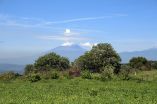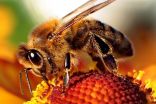(Press-News.org) CRISPR-Cas9 is a powerful new tool for editing the genome. For researchers around the world, the CRISPR-Cas9 technique is an exciting innovation because it is faster and cheaper than previous methods. Now, using a molecular trick, Dr. Van Trung Chu and Professor Klaus Rajewsky of the Max Delbrück Center for Molecular Medicine (MDC) Berlin-Buch and Dr. Ralf Kühn, MDC and Berlin Institute of Health (BIH), have found a solution to considerably increase the efficiency of precise genetic modifications by up to eightfold (Nature Biotechnology: doi:10.1038/nbt.3198)**.
"What we used to do in years, we can now achieve in months," said gene researcher and immunologist Klaus Rajewsky, indicating the power of this new genome-editing technology. CRISPR-Cas9 not only speeds up research considerably - at the same time it is much more efficient, cheaper and also easier to handle than the methods used so far.
The CRISPR-Cas9 technology allows researchers to transiently introduce DNA double-strand breaks into the genome of cells or model organisms at genes of choice. In these artificially produced strand breaks, they can insert or cut out genes and change the genetic coding according to their needs.
Mammalian cells are able to repair DNA damage in their cells using two different repair mechanisms. The homology-directed repair (HDR) pathway enables the insertion of preplanned genetic modifications using engineered DNA molecules that share identical sequence regions with the targeted gene and which are recognized as a repair template. Thus, HDR repair is very precise but occurs only at low frequency in mammalian cells.
The other repair system, called non-homologous end-joining (NHEJ) is more efficient in nature but less precise, since it readily reconnects free DNA ends without repair template, thereby frequently deleting short sequences from the genome. Therefore, NHEJ repair can only be used to create short genomic deletions, but does not support precise gene modification or the insertion and replacement of gene segments.
Many researchers, including Van Trung Chu, Klaus Rajewsky and Ralf Kühn, are seeking to promote the HDR repair pathway to make gene modification in the laboratory more precise in order to avoid editing errors and to increase efficiency. The MDC researchers succeeded in increasing the efficiency of the more precisely working HDR repair system by temporarily inhibiting the most dominant repair protein of NHEJ, the enzyme DNA Ligase IV. In their approach they used various inhibitors such as proteins and small molecules.
"But we also used a trick of nature and blocked Ligase IV with the proteins of adeno viruses. Thus we were able to increase the efficiency of the CRISPR-Cas9 technology up to eightfold," Ralf Kühn explained. For example, they succeeded in inserting a gene into a predefined position in the genome (knock-in) in more than 60 per cent of all manipulated mouse cells. Kühn has just recently joined the MDC and is head of the research group for "iPS cell based disease modeling". Before coming to the MDC, he was on the research staff of Helmholtz Zentrum München. "The expertise of Ralf Kühn is very important for gene research at MDC and especially for my research group," Klaus Rajewsky said.
Concurrent with the publication of the article by the MDC researchers, Nature Biotechnology published another, related paper on CRISPR-Cas9 technology. It comes from the laboratory of Hidde Ploegh of the Whitehead Institute in Cambridge, MA, USA.
Somatic gene therapy with CRISPR-Cas9 is a goal
The new CRISPR-Cas9 technology, developed in 2012, is already used in the laboratory to correct genetic defects in mice. Researchers also plan to modify the genetic set up of induced pluripotent stem cells (iPS), which can be differentiated into specialized cell types or tissues. That is, researchers are able to use the new tool to introduce patient-derived mutations into the genome of iPS cells for studying the onset of human diseases. "Another future goal, however, is to use CRISPR-Cas9 for somatic gene therapy in humans with severe diseases," Klaus Rajewsky pointed out.
Klaus Rajewsky: "One of the hottest topics in biomedicine and an innovative field"
"The CRISPR-Cas9 technology is one of the hottest topics in biomedical research and an innovative field," said Klaus Rajewsky. He pointed out that the new capabilities to precisely edit the genome has sparked off an intense debate in the USA and elsewhere, since the new precision tools could also be applied to modifying the genome in human germ cells or embryos. Although manipulation of the human germline is prohibited by law in many countries, including Germany, a global ban is not in effect. The MDC researchers are fascinated by the new opportunities the CRISPR-Cas9 system offers for biomedical research, but strictly reject genetic modification of the human germline.
INFORMATION:
**Increasing the efficiency of homology-directed repair for CRISPR/Cas9-induced precise gene editing in mammalian cells
Van Trung Chu1, Timm Weber1, Benedikt Wefers2,3, Wolfgang Wurst2,3,4 , Sandrine Sander1, Klaus Rajewsky1*, Ralf Kühn1,2,5*
1Max Delbrück-Center for Molecular Medicine, 13125 Berlin, Germany
2Helmholtz Zentrum München, German Research Center for Environmental Health, 85764 Neuherberg, Germany
3Deutsches Zentrum für Neurodegenerative Erkrankungen e. V., 81377 Munich, Germany
4Munich Cluster for Systems Neurology (SyNergy), Ludwig-Maximilians-Universität München, 80336 Munich, Germany
5Berlin Institute of Health, Kapelle-Ufer 2, 10117 Berlin, Germany
*corresponding authors
Contact:
Barbara Bachtler
Press Department
Max Delbrück Center for Molecular Medicine (MDC) Berlin-Buch
in the Helmholtz Association
Robert-Rössle-Straße 10; 13125 Berlin; Germany
Phone: +49 (0) 30 94 06 - 38 96
Fax: +49 (0) 30 94 06 - 38 33
e-mail: presse@mdc-berlin.de
http://www.mdc-berlin.de/en
Further information:
http://www.sciencemag.org/content/early/2015/03/18/science.aab1028.full.pdf
http://www.nature.com/news/ethics-of-embryo-editing-divides-scientists-1.17131
Noisy and cramped conditions in trains, planes and airports are discouraging many commuters and business people from working while travelling, new research shows.
Sociologist Dr Donald Hislop and psychologist Dr Carolyn Axtell found that the most popular place to work was in vehicles in the car park of a motorway service station.
In a paper in the journal Work, Employment and Society, Dr Hislop, of Loughborough University, and Dr Axtell, of the University of Sheffield, say "significant variations" in noise and lack of space "inhibited people's ability to work" on ...
A new study in the Journal of Clinical Sleep Medicine revealed that 44 percent of adults with sickle cell disease who report trouble sleeping actually have a clinical diagnosis of sleep disordered breathing, including sleep apnea, which lowers their oxygen levels at night.
"Previous research identified pain and sleep disturbance as two common symptoms of adult sickle cell disorder," said Sunil Sharma, M.D., Associate Professor of Pulmonary and Critical Care Medicine, Sidney Kimmel Medical College at Thomas Jefferson University and first author on the study. "We wanted ...
The UN Intergovernmental Panel on Climate Change (IPCC) periodically releases Assessment Reports in order to inform policymakers and the public about the latest scientific evidence on climate change. The publication of each report is a key event in the debate about climate change, but their reception and coverage in the media has varied widely.
A study, published today in the journal Nature Climate Change, has for the first time analysed how Twitter, TV and newspapers reported the IPCC's climate evidence. Understanding how media coverage varies is important because people's ...
New findings from an international team of archaeological researchers highlight the complexity of geopolitics in Aztec era Mesoamerica and illustrate how the relationships among ancient states extended beyond warfare and diplomacy to issues concerning trade and the flow of goods.
The work was done by researchers from North Carolina State University, the Centro de Investigación y de Estudios Avanzados del Instituto Politécnico Nacional-Unidad Mérida, El Colegio de Michoacán and Purdue University.
The researchers focused on an independent republic ...
DENVER, March 25, 2015 -- The sweet taste and smell of antifreeze tempts children and animals to drink the poisonous substance, resulting in thousands of accidental poisonings in the United States every year. But today researchers will describe a new, nontoxic product based on a common food additive that could address this health issue and help the environment at the same time.
The presentation will take place here at the 249th National Meeting & Exposition of the American Chemical Society (ACS), the world's largest scientific society. The meeting features nearly 11,000 ...
DENVER, March 25, 2015 -- Water-borne algal blooms from farm fertilizer runoff can destroy aquatic life and clog rivers and lakes, but scientists will report today that they are working on a way to clean up these environmental scourges and turn them into useful products. The algae could serve as a feedstock for biofuels, and the feedstock leftovers could be recycled back into farm soil nutrients.
A multi-pronged nutrient bio-remediation system is the goal of a team of scientists who will present their research at the 249th National Meeting & Exposition of the American ...
New research presented today at the 2015 Annual Meeting of the American Academy of Orthopaedic Surgeons (AAOS) identifies nicotine dependence, obesity, alcohol abuse and depressive disorders as risk factors for low back pain, a common condition causing disability, missed work, high medical costs and diminished life quality.
According to the U.S. Centers for Disease Control and Prevention's (CDC) 2012 National Health Survey, nearly one-third of U.S. adults reported that they had suffered from low back pain during the previous three months. For many adults, low back pain ...
A new study presented today at the 2015 Annual Meeting of the American Academy of Orthopaedic Surgeons (AAOS) found that 53 percent of the parents/caregivers of youth baseball pitchers are unaware of safe pitching practices designed to prevent overuse injuries--common tears or damage, most often to the elbow (ulnar collateral ligament) or shoulder--which can cause pain, lost play time and, if not treated appropriately, arthritis, deformity and disability.
Between 2 and 8 percent of youth pitchers will suffer an overuse injury from throwing too hard, too often, too young, ...
Asked to name one way people have changed the environment, many people would probably say "global warming." But that's really just the start of it.
People burn fossil fuels, but they also mine and manufacture. It's who we are: Homo fabricus: man the maker. And as a side effect of our ingenuity and craft we have taken many metals originally buried safely in Earth's depths and strewn them about the surface.
Does it matter? Yehuda Ben-Shahar and Eirik Søvik, biologists at Washington University in St. Louis, together with colleagues from Andrew Barron's lab at Macquarie ...
ADDIS ABABA, ETHIOPIA (25 MARCH 2015)--Amidst fears that global warming could zap a vital source of protein that has sustained humans for centuries, bean breeders with the CGIAR global agriculture research partnership announced today the discovery of 30 new types, or lines as plant breeders refer to them, of "heat-beater" beans that could keep production from crashing in large swaths of bean-dependent Latin America and Africa.
"This discovery could be a big boon for bean production because we are facing a dire situation where, by 2050, global warming could reduce areas ...


